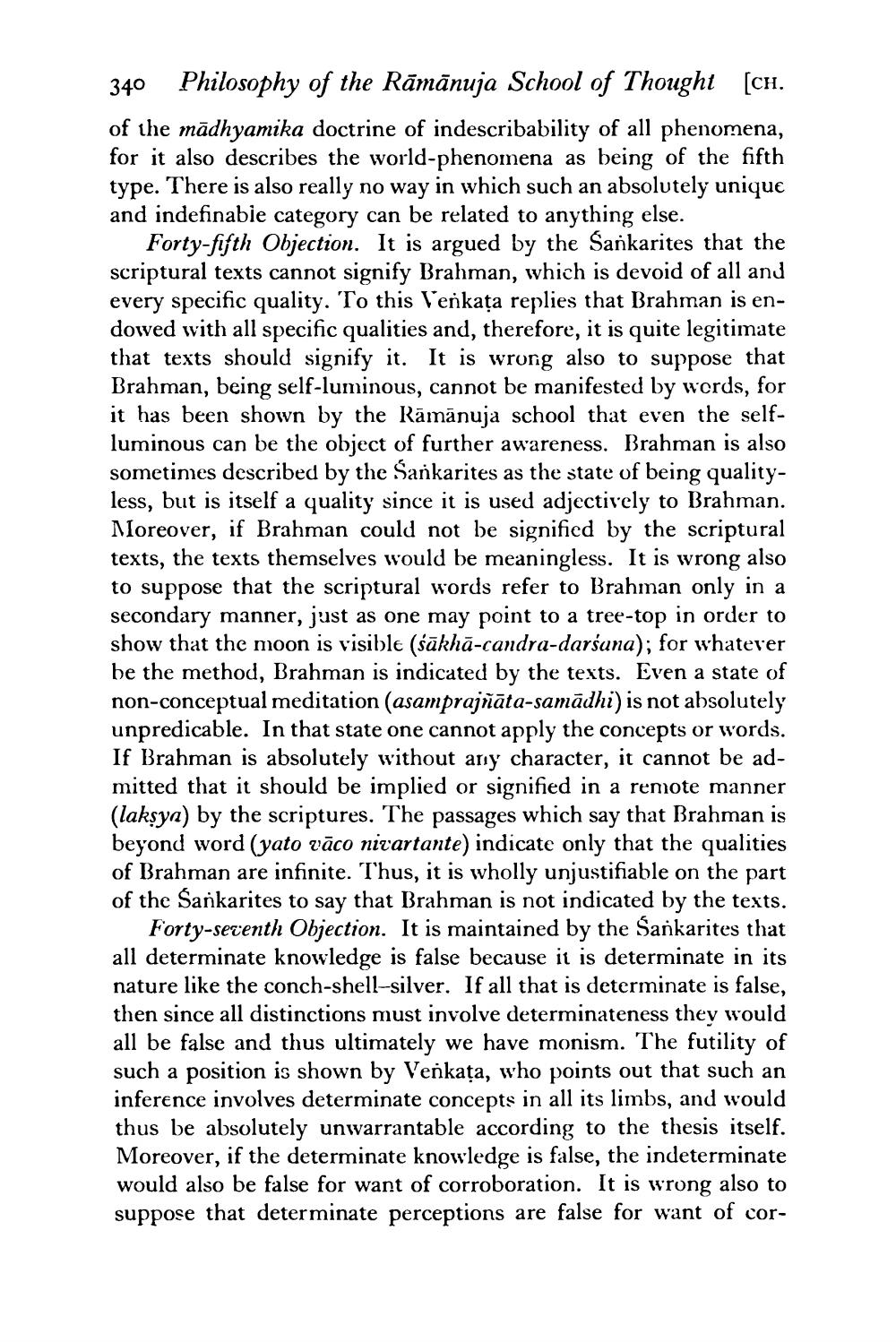________________
340
Philosophy of the Rāmānuja School of Thought [CH.
of the madhyamika doctrine of indescribability of all phenomena, for it also describes the world-phenomena as being of the fifth type. There is also really no way in which such an absolutely unique and indefinable category can be related to anything else.
Forty-fifth Objection. It is argued by the Sankarites that the scriptural texts cannot signify Brahman, which is devoid of all and every specific quality. To this Venkata replies that Brahman is endowed with all specific qualities and, therefore, it is quite legitimate that texts should signify it. It is wrong also to suppose that Brahman, being self-luminous, cannot be manifested by words, for it has been shown by the Rāmānuja school that even the selfluminous can be the object of further awareness. Brahman is also sometimes described by the Sankarites as the state of being qualityless, but is itself a quality since it is used adjectively to Brahman. Moreover, if Brahman could not be signified by the scriptural texts, the texts themselves would be meaningless. It is wrong also to suppose that the scriptural words refer to Brahman only in a secondary manner, just as one may point to a tree-top in order to show that the moon is visible (śākhā-candra-darśana); for whatever be the method, Brahman is indicated by the texts. Even a state of non-conceptual meditation (asamprajñāta-samādhi) is not absolutely unpredicable. In that state one cannot apply the concepts or words. If Brahman is absolutely without any character, it cannot be admitted that it should be implied or signified in a remote manner (lakṣya) by the scriptures. The passages which say that Brahman is beyond word (yato vāco nivartante) indicate only that the qualities of Brahman are infinite. Thus, it is wholly unjustifiable on the part of the Sankarites to say that Brahman is not indicated by the texts.
Forty-seventh Objection. It is maintained by the Sankarites that all determinate knowledge is false because it is determinate in its nature like the conch-shell-silver. If all that is determinate is false, then since all distinctions must involve determinateness they would all be false and thus ultimately we have monism. The futility of such a position is shown by Venkata, who points out that such an inference involves determinate concepts in all its limbs, and would thus be absolutely unwarrantable according to the thesis itself. Moreover, if the determinate knowledge is false, the indeterminate would also be false for want of corroboration. It is wrong also to suppose that determinate perceptions are false for want of cor




